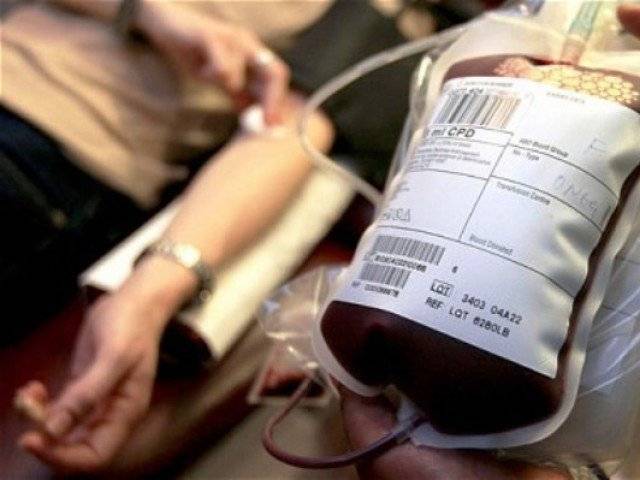
The facility — which will not only carry out blood tests but provide blood components to health facilities through a mechanism devised by using latest technology — has been established with assistance from Kreditanstalt für Wiederaufbau (KfW), a German bank at a cost of Rs190 million. Officials informed KfW has sponsored 10 such centres across the country including areas in Punjab, Sindh, Balochistan, Kashmir and K-P. The centre in K-P has been completed before any of the other provinces’ with 60% assistance from KfW and 40% from the K-P government.
The government also plans to establish such centres in Abbottabad, Swat and DI Khan, officials at the RBC said. They said previously the system for blood transfusion in the region was in shambles. Blood was being collected from replacement donors and those who could provide a donor would be given blood.
The officials also said that, previously a full bag of blood would be provided to the patient even when the patient did not need all of it.
“If someone needs fresh frozen plasma, there is no need for the whole bag. We are now capable of providing fresh frozen plasma,” the project’s director, Professor Dr Muhammad Tahir Khan, said. He added the facility could separate red blood cells, platelets and plasma from the blood. He maintained LRH requires 48,000 units of blood every year but with support of the voluntary donors RBC will provide 50,000 units annually which makes 150,000 units of red blood cells, platelets and fresh-frozen plasma and easily manage LRH’s demand.
Muhammad Tahir said only voluntary donors will be facilitated at RBC and the centre will keep a record of donors, including barcodes on the donated blood bags to check hemoglobin levels of the donor until the separation of the blood’s components. The barcode will also be used to track the donation. He said health workers always demanded fresh blood but they did not know that frozen plasma remains fresh for one year, red blood cells for five days and platelets for three days adding that RBC guarantees safe screened blood components to patients.
RBC’s director also confirmed that a law is being processed at the provincial law department and will be tabled before the provincial assembly in next session so that the safe blood transfusion act is promulgated. He added that a committee, to be created in the near future, will make the selection of hospitals that will benefit from the RBC.
When asked about the different foundations collecting blood, Muhammad Tahir said once the law is passed things will be channelized, however he added, “why would somebody pay in exchange for blood at different foundations once free screened and safe components are offered by RBC.”
Technicians at the facility said 480 different blood tests including those for Hepatitis B, C and HIV could be carried out at the facility within 90 minutes adding that not individual but hospitals will be facilitated at the centre, while donors will become RBC members.
Published in The Express Tribune, August 28th, 2016.


1732519298-0/BeFunky-collage-(85)1732519298-0-165x106.webp)
1732611352-0/lamar-(5)1732611352-0-165x106.webp)
1732610018-0/BeFunky-collage-(91)1732610018-0-165x106.webp)






COMMENTS
Comments are moderated and generally will be posted if they are on-topic and not abusive.
For more information, please see our Comments FAQ